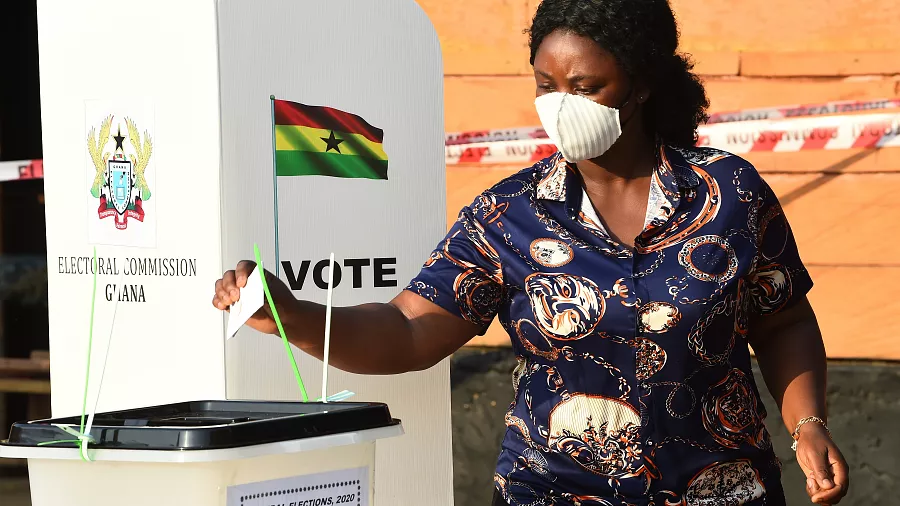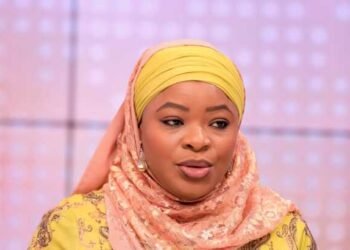Prof. Stephen Kwaku Azar Asare, Democracy and Development Fellow at CDD-Ghana has called on political parties to strengthen internal democracy at all levels.
He emphasized that Article 55(5) of the Constitution requires political parties to operate democratically and align with national laws.
Azar Asare highlighted the importance of giving members a meaningful voice through voting, as true democracy reflects the nation’s democratic values.
He noted that many Ghanaian political parties fall short of these principles, with centralized decision-making and top-down appointments undermining participation and eroding trust.
“Genuine internal democracy requires that all members, not an elite few, have a say in selecting their leaders and shaping their party’s direction at every level. At a minimum, there must be internal democracy in the polling areas, constituencies, overseas branches, and parliamentary caucuses.
“The polling areas form the foundation of our political parties. Ensuring that members at this level elect their executives or leaders is important. First, it promotes ownership. Members feel invested in the leaders they have chosen. They will go the extra mile for them. Next, it improves accountability. Elected leaders are more responsive to grassroots concerns”.
Prof. Stephen Kwaku Azar Asare
Asare explained that elections boost participation, energizing members and deepening their connection to the party’s mission.
He emphasized that constituency members should elect their leaders and candidates to ensure local priorities are represented.
According to him, leaders should emerge from the people’s choices, as impositions are often rejected.
Transparent elections reduce divisions, as fairness in the process fosters trust and acceptance of outcomes.
He added that overseas branches should play a crucial role in shaping party policies and promoting international engagement, stressing that members of these branches must have the ability to elect their leaders. “Elected leaders understand and address the unique challenges of overseas members”.
Asare emphasized that empowered members actively support the party’s goals, showing the party’s commitment to valuing all members, regardless of location.

He stressed that all party members should vote for national executives and flagbearers to reflect the collective aspirations of the party. “GOGO has long supported the ‘one person, one vote’ principle over the delegate system”.
He indicated that internal democracy should be felt in the highest deliberative body, opposing when party leaders or the Speaker are appointed by party bosses or the president.
Asare indicated that MPs must elect their leaders in parliament independently, free from interference by party executives or external influences as this ensures legislative independence, promotes meritocracy, and reduces partisan pressure.
Asare Highlights Benefits, Challenges of Internal Democracy
Furthermore, Prof. Stephen Kwaku Azar Asare emphasized that internal democracy strengthens legitimacy, accountability, and cohesion by ensuring leaders are chosen through active participation.
He indicated that it nurtures talent, fosters unity, and increases public trust, positioning the party as a credible advocate of democracy.

“While internal democracy is essential, its implementation faces several hurdles: First, is the resistance from party elites. Established leaders will resist relinquishing control. They are beneficiaries of the failed system and will come out with theories about why internal democracy won’t work in this country. Only consistent advocacy and mobilization of members can shift the balance of power.
“Second, is the administrative complexity. Organizing elections at every level requires resources, but the benefits of legitimacy and engagement far outweigh the costs. The first step to do this is to allow voters to express their party preference when registering to vote. This creates an instantaneous political party database for the quick implementation of OPOV. For this to succeed, voters must be convinced that the database will not be accessed by unscrupulous politicians for settling scores”.
Prof. Stephen Kwaku Azar Asare
Prof. Asare also highlighted that while competitive elections can risk factionalism, clear rules, and transparency can minimize this.
He also pointed out the troubling dynamic where party financiers, due to their financial contributions, often gain undue influence over party decisions.
This undermines the democratic principle of equal voice for all members, marginalizing ordinary members and fostering elitism.
Such practices, he emphasized, erode trust and cohesion, especially when these financiers benefit from government contracts rather than risk-taking enterprises.
To address the imbalance, Prof. Asare called for reform in political party and campaign financing.
Key measures include capping contributions and spending, enhancing state funding to reduce reliance on private financiers, and creating a division at the EC to enforce transparent, audited financing.
These reforms, he pointed out, would ensure fairness, strengthen internal democracy, and restore confidence in political parties as true representatives, not tools for the highest bidder.
Prof. Asare emphasized that internal democracy is crucial for building resilient, inclusive, and effective political organizations. “Empowering members at all levels, from polling stations to Parliament, ensures that parties truly reflect the aspirations of their base”.
Asare emphasized that internally democratic parties inspire trust and loyalty by fostering accountability, unity, and talent as they uphold democratic principles, creating competent, ethical, and representative leadership.
According to him, the strength of a party lies in empowering its members, ensuring every voice is heard, and building a democratic future for both the party and the nation. “The status quo allows those at the top to “eat cake” while ordinary members, the backbone of the party, fight over crumbs”.
READ ALSO: Dyson Lobby Sparks Tax Break Debate For Innovators




















